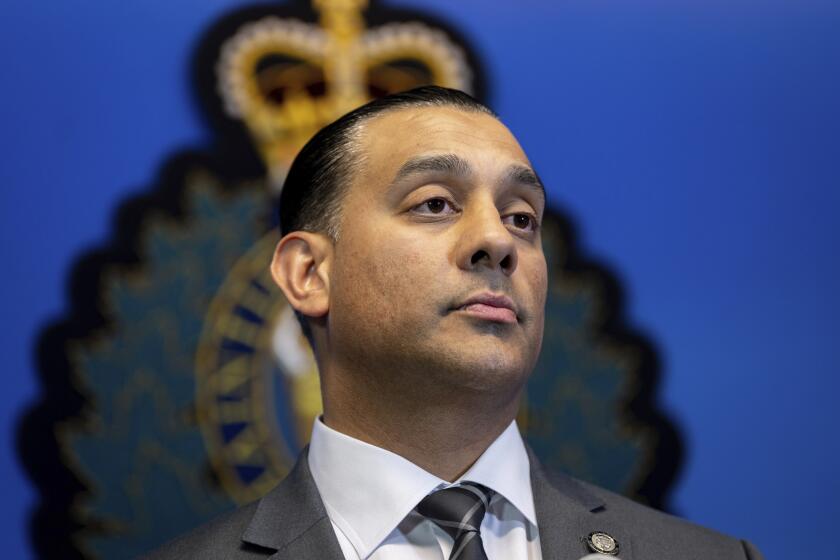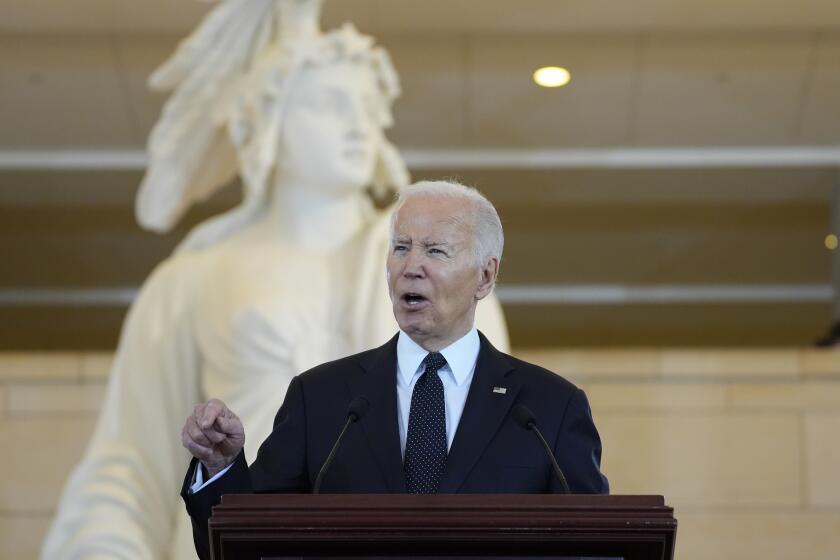FCC Tests Ability to Bar Speech, Say Broadcasters
The Federal Communications Commission’s investigation of three radio stations for airing allegedly sexually explicit “indecent broadcasts” reflects the current climate of heightened governmental concern over morality, radio executives and First Ammendment experts said Friday.
“I don’t think you can ignore the climate of the times in assessing why the commission has decided to do this,” said Floyd Abrams, an attorney who has represented such companies as NBC and the New York Times on First Amendment issues. “This decision was the beginning of a new crackdown by the commission on supposedly indecent speech. It appears that the commission is testing the outer limits of its ability to regulate, censure and censor allegedly indecent speech.”
The FCC initiated administrative proceedings Thursday against stations in Chicago, Indianapolis and San Jose for airing what the agency said may be sexually explicit material during daytime hours. The proceedings could result in fines of up to $20,000 each. After a 30-day review, the commission will decide whether a violation has occurred and, if so, whether sanctions should be imposed. Each investigation was prompted by complaints from listeners, said FCC deputy general counsel Renee Licht.
Local radio station officials predicted that the FCC’s action will make operators more cautious about programming content.
“I think everyone will have to understand what the FCC policy really is,” said Howard Neal, general manager of talk station KFI-AM (640). “I think the FCC will scrutinize every market and I think they will look hard at especially the AM talk radio stations that may be looking to improve their rating situations.
“What may have happened is that with the Howard Sterns of the world, we were going overboard and doing non-meaningful things over the air with sexual innuendo,” Neal said, referring to the controversial New York deejay whose “shock jock” show came under fire from the FCC in 1987. “I think that enough complaints by listeners have caused them to review their standards”
Said the FCC’s Licht: “There’s certainly no denying that there is increasing public concern and there seems to be an increasing volume of complaints at the commission and elsewhere about broadcasting indecency. The commissioners felt they needed to take action”
More to Read
Start your day right
Sign up for Essential California for news, features and recommendations from the L.A. Times and beyond in your inbox six days a week.
You may occasionally receive promotional content from the Los Angeles Times.






